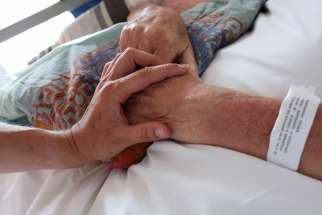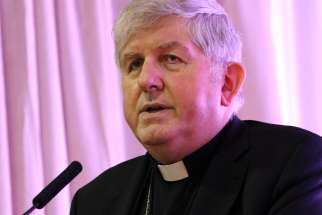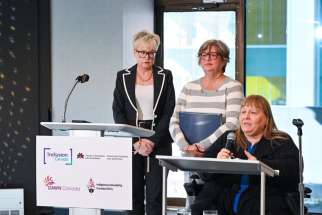Catholic bishops decry British end of life vote: 'May God help us'
Catholic bishops in England have decried a vote for assisted suicide, with one saying it represented a "dark day" in the history of the country.
MAiD non-compliance goes unpunished
Regulators of Ontario’s euthanasia program have identified 428 cases of non-compliance by assisted suicide providers since 2016, but none of those violations were reported to the public or law enforcement.
Quebec defies Canadian law on MAiD directives
Quebec began accepting advanced requests for assisted suicide on Oct. 30, and the federal government has pledged not to stand in the Francophone province’s way.
Achtman brings out humanity in end-of-life stories
On Oct. 30, the Province of Quebec implemented its highly controversial euthanasia directives that allow certain patients to make advance requests for medical assistance in dying (MAiD), beating any national changes to the current law. Now, patients can request MAiD well before the natural end of life under the guise that the appeal is required before their condition renders them incapable of giving consent.
Bishops champion life over MAiD
The Canadian Conference of Catholic Bishops (CCCB), the Pontifical Academy for Life (PAV) and collaborating stakeholders have crystalized a vision of palliative care that champions life rather than medically assisted death.
Euthanasia empties life of its meaning
In 2013, I wrote a column for the National Post about Dr. Donald Low, a microbiologist at Mt. Sinai Hospital. He spoke about his cancer diagnosis, his fear of tremendous pain that might be looming and the loss of his dignity. He spoke without self-pity and urged Canada to make physician-assisted death legal. He died eight days later.
Call it what it is: lethal injection
“Saddened, but not surprised” is how Cardinal Thomas Collins characterized his reaction to Canada’s now infamous reputation as the world’s fastest-growing euthanasia regime.
Disability rights coalition challenging Track 2 MAiD
A coalition of disability rights organizations has united to challenge Track 2 of Canada’s Medical Assistance in Dying (MAiD) law, which provides euthanasia to people with a disability who are not dying or whose death is not reasonably foreseeable.
MAiD exception to the rules
Hope already seemed on life support in what have become the killing fields of Canada’s public health-care system.
Canada has world's fastest-growing MAiD regime
Catholic charities unite to meet prisoner hospice needs
In response to the concerns for the rising numbers of incarcerated Canadians asking to end their lives by medical assistance in dying (MAiD), Catholic Charities of the Archdiocese of Toronto has brought together two organizations that serve the marginalized of society in a unique collaboration to provide end-of-life care for prisoners.
Doctors rise up to fight Nova Scotia MAiD law
The Christian Medical and Dental Association (CMDA) of Canada, along with more than 40 Nova Scotia medical practitioners and 10 Dalhousie medical school graduates, have urged the College of Physicians and Surgeons of Nova Scotia (CPSNS) to renege on a new policy they believe violates their conscience rights.
Prison MAiD safe: Correctional Service of Canada
Despite concerns surrounding the implementation of Medical Assistance in Dying (MAiD) for Canadian federal prisoners, the Correctional Service of Canada (CSC) is confident the process is fool proof.
Editorial: ‘Is MAiD made for prisoners?’
The appalling contemporary throwback known by its cutesy euphemism “medical aid in dying” (MAiD) is now making its death fingered presence felt in the nation’s jail houses.
Vancouver Catholic hospital faces MAiD ‘conundrum’
More than half a year has now passed since the British Columbia government ordered Vancouver Coastal Health to build a euthanasia facility next to St. Paul’s Hospital, thereby doing an end run around the Catholic hospital’s principled opposition to assisted suicide.
















